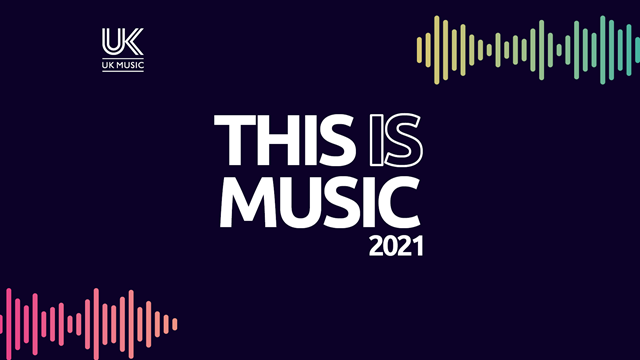UK Music, unveiled its This Is Music 2021 annual report yesterday. It painted a picture of the devastating impacts of both Covid-19 and Brexit upon the music industry in the UK in 2020.
69,000 jobs – one in three of the total workforce, were wiped out last year. Three-quarters of workers in the sector are self-employed and did not receive help from government support schemes, according to the report.
The number of jobs fell 35% to 128,000 in 2020 from 197,000 in 2019 as the pandemic shut down live events, tours and forced studios to close their doors, UK Music said in its annual report.
The music industry’s contribution to the UK economy fell 46% to 3.1 billion pounds in 2020 from 5.8 billion pounds in 2019, following the shut down of live events for eighteen months during the pandemic.
While exports fell 23% to 2.3 billion pounds, no doubt affected by Britain’s exit from the European union and the associated costs and issues with shipping.
UK Music’s Chief Executive Jamie Njoku-Goodwin said the report “provided clear evidence of the need for swift Government action to help the music industry to continue rebuilding and return to growth post-pandemic.”
UK Music called on the government to introduce tax incentives and employment-boosting measures, and to help musicians and crew deal with the paperwork and extra costs involved in touring mainland Europe after Brexit.
It said it also wants a permanent reduction in the value-added tax (VAT) rate on tickets and live music events, more funding and support for music exports as well as funding for music education and for the self-employed.
After imposing the first national lockdown in March 2020, the UK government announced a 2-billion-pound culture recovery fund to help museums, cinemas, theatres, cinemas and arts venues but many venues have yet to see a penny of grants. While in 2020 festivals such as Glastonbury and Latitude and Focus Wales were forced to cancel or postpone.
While a late insurance scheme for music festivals implemented in late August this year, came too late for many events which had to cancel or postpone, or were plunged into debt and worse still the inability to return.
Entertainment venues have since reopened and late summer festivals including the Reading, Leeds, and Green Man Festival have taken place with the resumption of live music this year.
In addition to UK Music’s research, they also commissioned Public First to survey the views of the general public on the music industry. It found just how important music is to peoples lives.
The survey by Public First found:
75% of the public are proud of the UK music industry and its heritage
59% believe music improves the UK’s reputation overseas
74% say music is important to their quality of life
UK listens to 60 billion hours of music a year – the equivalent of 7 million years
1 million people took up a musical instrument during lockdown
UK Music Chief Executive Jamie Njoku-Goodwin said:
“The past 18 months have been exceptionally challenging for the UK music industry, with billions wiped off the value of the sector – but we are determined to look to the future and focus on recovery.
“Music matters to us all. And in a year when we’ve seen just how important music is to all our lives, it’s more important than ever that we take the necessary steps to protect, strengthen and grow the industry.
“In our Music Industry Strategic Recovery Plan we identify the policy interventions required and set out a clear action plan to get the industry back up on its feet.
“With the right support, the UK music industry can help drive the post-pandemic recovery. This Is Music sets out the positive role the music industry can play in our country’s future, and the steps that need to be taken to achieve that.
“Music is a key national asset, part of our history and our heritage. More than that, it’s part of our future. And we can’t value it highly enough.”
BBC Director-General Tim Davie said: “The UK’s music industry is a unique national asset and fundamental to the success of our world-beating creative industries. Before Covid hit, the creative industries were generating £116bn in annual GVA for the UK. Music and the wider creative sector have a critical role to play in driving the post-pandemic cultural and economic recovery.”
James Sanderson, Chief Executive of the National Academy for Social Prescribing, said: “Music can play a powerful and meaningful role in supporting health and wellbeing – improving quality of life through triggering memories of joy, and creating moments of relief for people struggling with mental ill health.”




